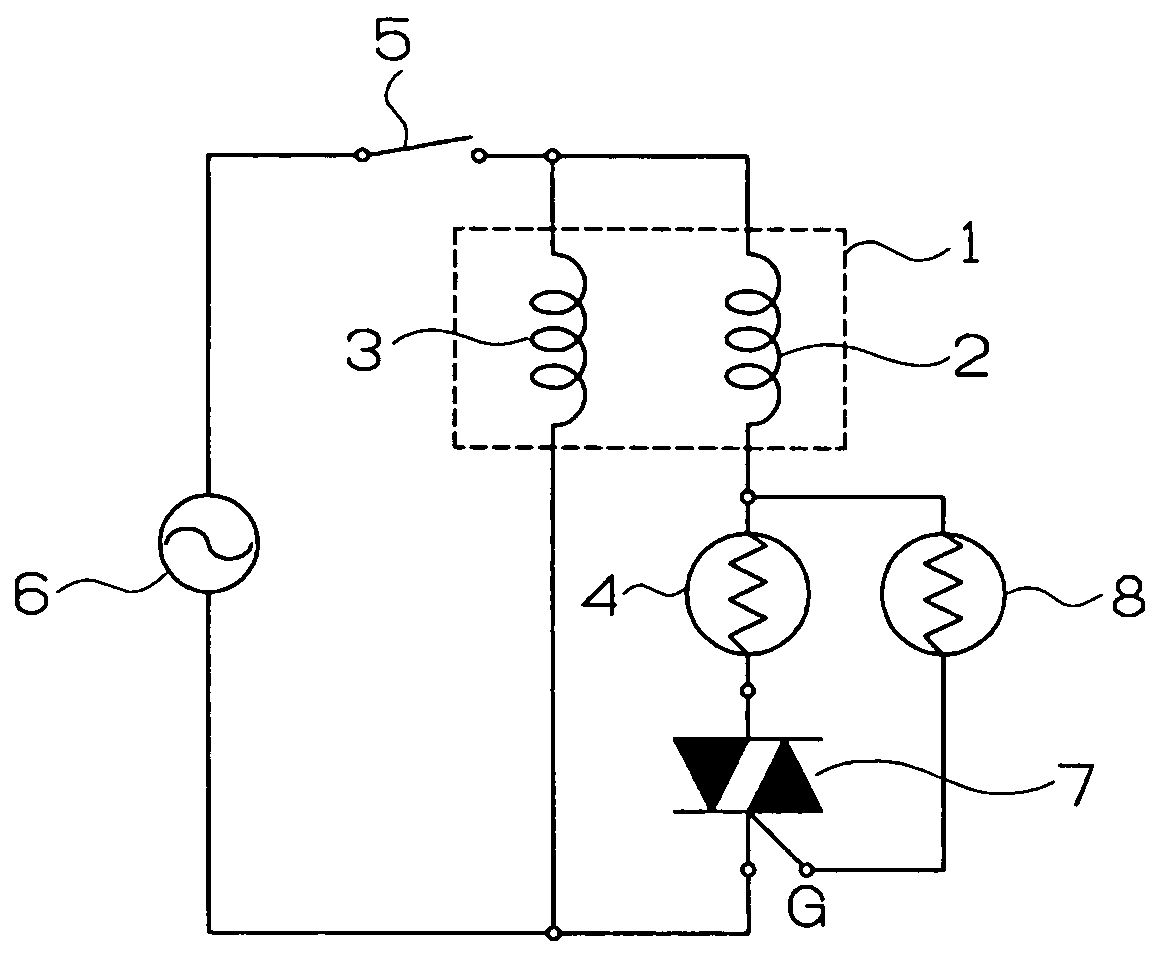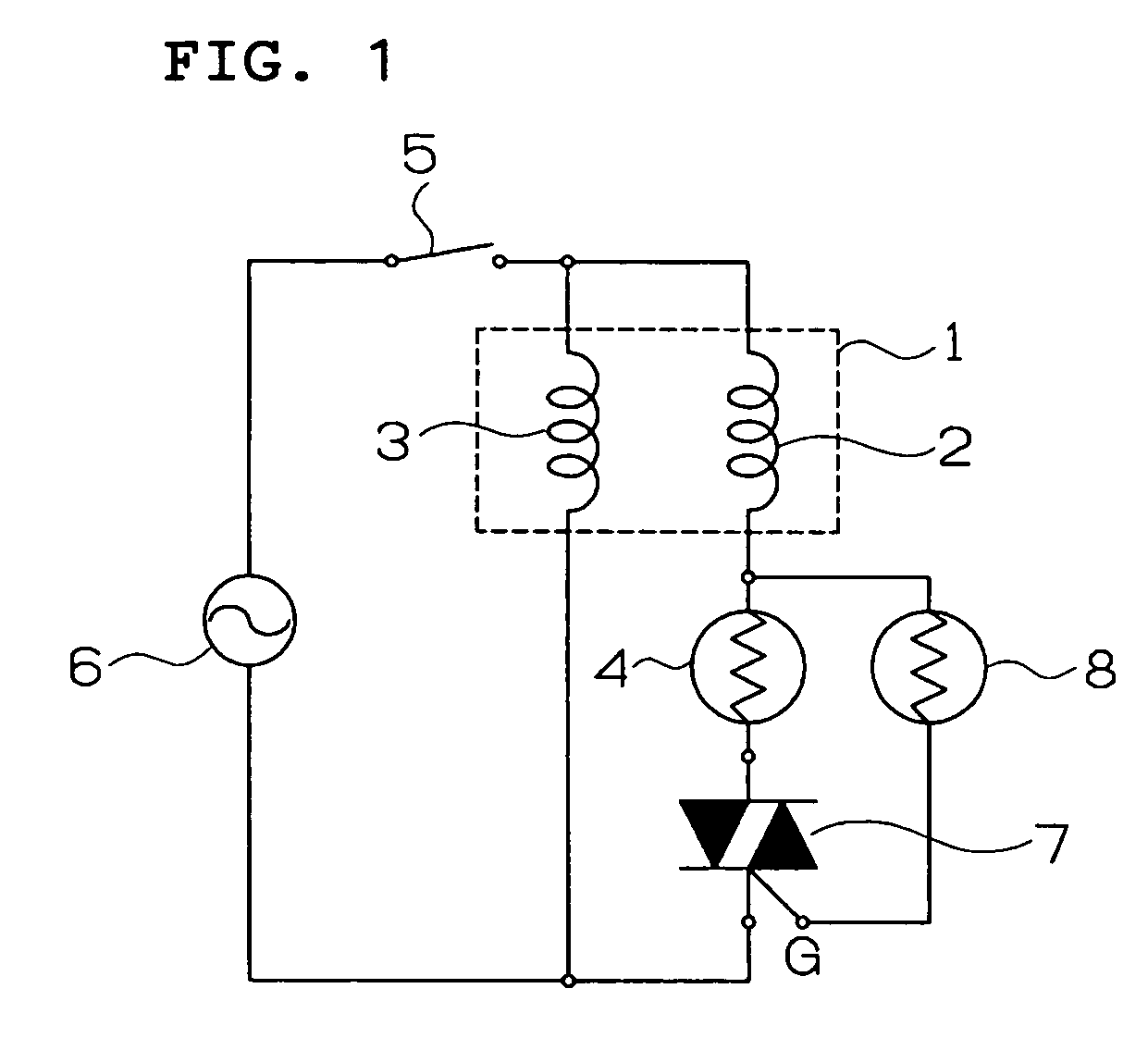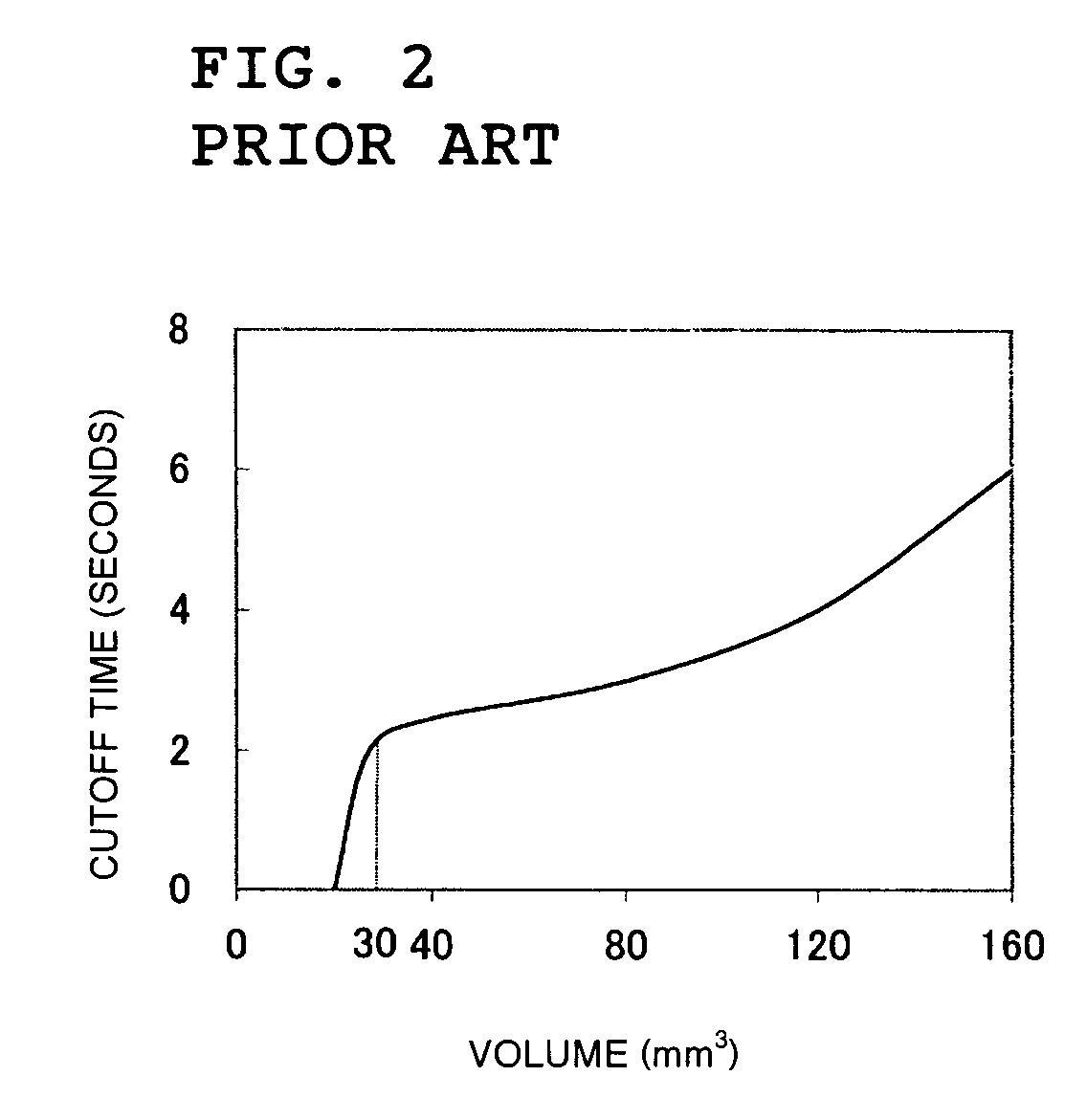Starting circuit for single-phase induction motor
a single-phase induction motor and starting circuit technology, applied in the direction of dynamo-electric converter control, dynamo-electric gear control, electric generator control, etc., can solve the problems of difficult control of the starting circuit of the single-phase induction motor, resistance is already too high for the motor to operate normally, and the triac control positive characteristic thermistor takes a relatively long time to achieve the effect of reducing the volume of the positive characteristic thermistor and reducing
- Summary
- Abstract
- Description
- Claims
- Application Information
AI Technical Summary
Benefits of technology
Problems solved by technology
Method used
Image
Examples
first preferred embodiment
[0034]The preferred embodiments of the present invention are described below with reference to the drawings. FIG. 1 is a circuit diagram of a starting circuit of a single-phase induction motor in accordance with a first preferred embodiment of the present invention.
[0035]A motor 1 includes an auxiliary coil 2 operating at the startup of the motor 1 and a main coil 3 operating to maintain the motor 1 at normal operation. In the starting circuit for the single-phase induction motor in accordance with the first preferred embodiment of the present invention, a motor starting positive characteristic thermistor 4 and a triac 7 are connected in series with the auxiliary coil 2 for starting the motor 1. A triac control positive characteristic thermistor 8 is connected in parallel with the motor starting positive characteristic thermistor 4 with one terminal of the triac control positive characteristic thermistor 8 connected to a gate terminal G of the triac 7. The triac control positive cha...
second preferred embodiment
[0043]FIG. 1 is also referred to to describe a circuit diagram of a starting circuit of the single-phase induction motor in accordance with a second preferred embodiment of the present invention. The discussion of the circuit with reference to FIG. 1 is also applicable to the starting circuit for the single-phase induction motor according to the second preferred embodiment.
[0044]The starting circuit for the single-phase induction motor of the second preferred embodiment includes a triac operating at a power source voltage of about 100 V and having a triac turn-on gate current of about 30 mA at an operating temperature of about −10° C. The triac control positive characteristic thermistor 8, connected in parallel with the motor starting positive characteristic thermistor 4, includes one terminal connected to the gate G of the triac 7. The triac control positive characteristic thermistor 8 has dimensions of about 2.5 mm in diameter, about 2.5 mm in thickness, and about 12.3 mm3 in volu...
PUM
 Login to View More
Login to View More Abstract
Description
Claims
Application Information
 Login to View More
Login to View More - R&D
- Intellectual Property
- Life Sciences
- Materials
- Tech Scout
- Unparalleled Data Quality
- Higher Quality Content
- 60% Fewer Hallucinations
Browse by: Latest US Patents, China's latest patents, Technical Efficacy Thesaurus, Application Domain, Technology Topic, Popular Technical Reports.
© 2025 PatSnap. All rights reserved.Legal|Privacy policy|Modern Slavery Act Transparency Statement|Sitemap|About US| Contact US: help@patsnap.com



